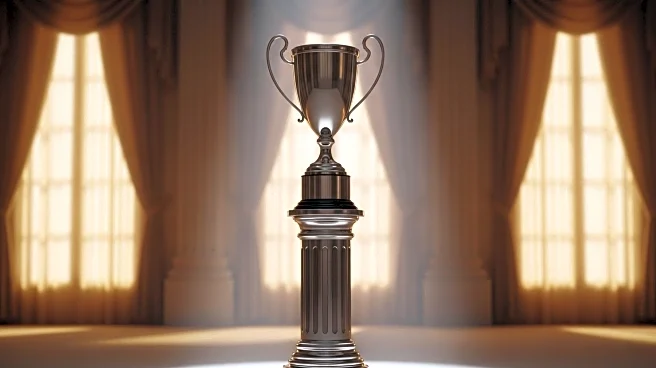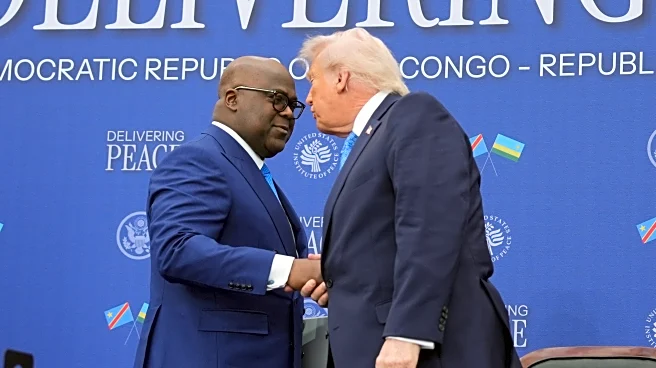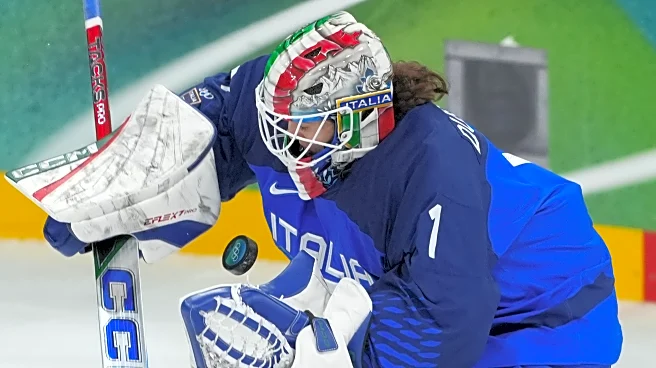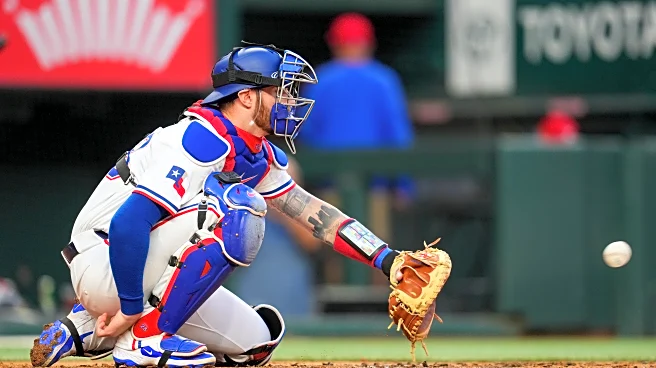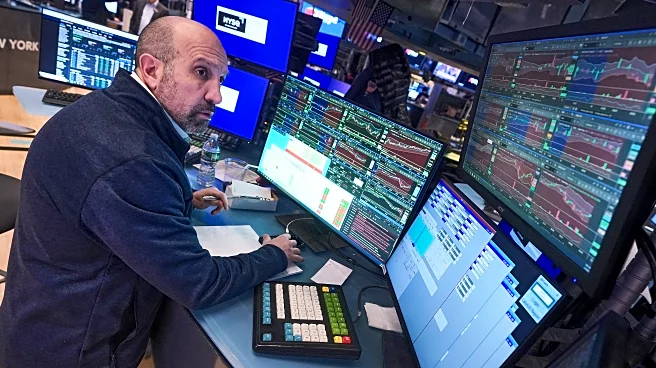What's Happening?
Luke Littler clinched his first World Grand Prix title by defeating Luke Humphries 6-1 in Leicester. Littler, who is 18 years old, showcased a strong performance throughout the tournament, despite having been knocked out in the first round last year. His victory earned him £120,000 in prize money and marked his seventh PDC major televised title, placing him joint seventh in history. Littler's win has significantly narrowed the gap between him and Humphries at the top of the PDC world rankings, with Littler now trailing by just over £70,000. The two players are in a competitive race to arrive at December's World Championships as the world number one.
Why It's Important?
Littler's victory is a pivotal moment in the world of darts, as it intensifies the competition for the top spot in the PDC world rankings. His success at such a young age highlights the emergence of new talent in the sport, potentially shifting the dynamics among established players. The financial implications are also significant, as the prize money contributes to Littler's ranking and his pursuit of becoming the world number one. This development could influence sponsorships, media attention, and the overall popularity of darts, particularly among younger audiences.
What's Next?
Littler is set to participate in the World Youth Championship, where he previously won in 2023. His involvement in this event, despite his recent breakthrough at the senior level, suggests he is maintaining a broad competitive focus. The upcoming World Championships in December will be crucial, as both Littler and Humphries aim to secure the world number one ranking. Their performances in the intervening tournaments will be closely watched, with potential impacts on their standings and future matchups.
Beyond the Headlines
The rivalry between Littler and Humphries is shaping the narrative in professional darts, emphasizing the importance of dedication and strategic play. Littler's rapid ascent challenges traditional hierarchies and could inspire other young players to pursue professional careers in darts. The cultural impact of such rivalries may enhance the sport's visibility and attract new fans, contributing to its growth and evolution.
